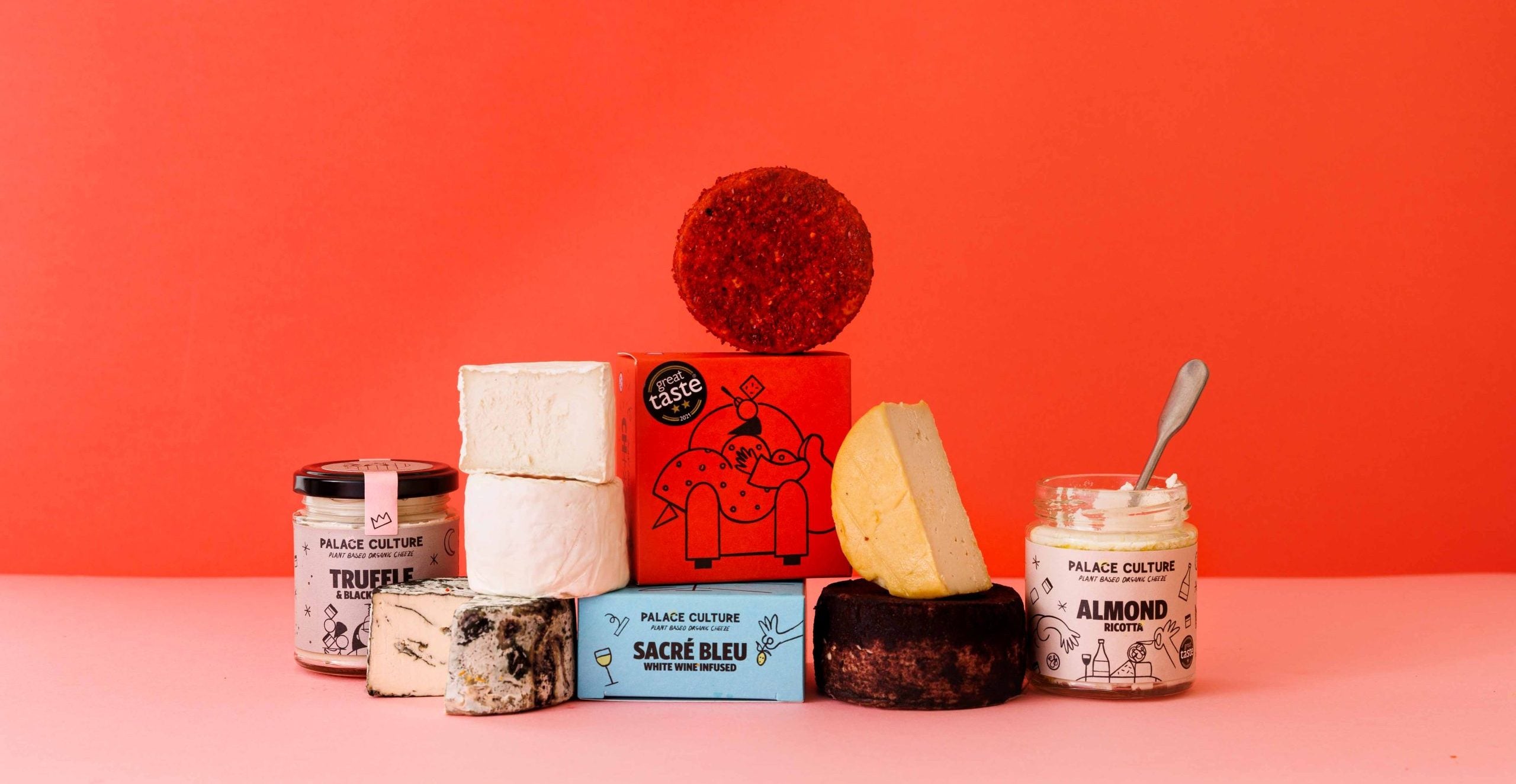[ad_1]

The UK’s Palace Culture has seen its plant-based cheese sales triple since launching in local grocery chain Waitrose in November under the guiding arm of The Compleat Food Group.
The Compleat Food Group, set up in 2021 through the investor-backed merger of Winterbotham Darby and Addo Food Group, bought the London-based start-up in October for an undisclosed sum.
Palace Culture, founded in 2018 by Mirko Parmigiani, then won listings in Waitrose for three of its artisanal plant-based cheese brands – Kimcheeze, The Mouldy Goaty and Holy Smokes. Sales started in mid-November and the business has eyes on rolling out in other UK major retailers as soon as 2024.
“Demand has grown already in just three weeks – it has tripled from the first week, Parmigiani told Just Food. “It shows that there’s a demand for plant-based foods, especially premium plant-based cheese. We want to get to a point where we are the leader in premium plant-based cheese.
“The focus is Waitrose at the moment, make sure it works well, and then eventually, in the next six to 18 months, start working on approaching the other retailers.”
Palace Culture’s cheeses are made with cashew nuts and almonds using the fermentation process and are based on natural ingredients without additives or preservatives. They are certified organic too, which, Parmigiani admits, makes his cheeses a premium proposition.
Access the most comprehensive Company Profiles
on the market, powered by GlobalData. Save hours of research. Gain competitive edge.

Company Profile – free
sample
Your download email will arrive shortly
We are confident about the
unique
quality of our Company Profiles. However, we want you to make the most
beneficial
decision for your business, so we offer a free sample that you can download by
submitting the below form
By GlobalData
However, he said the present three-strong range – available in 89 of Waitrose’s “largest” stores across the UK – are “priced at a point that is competitive with other plant-based artisanal cheeses”.
Many of those, he said, have additives like tapioca or coconut oils, unlike Palace Culture’s cheeses.
“Before The Compleat Food Group takeover, our cheeses were more expensive because we were making smaller quantities. We’ve been able to bring that price down because we are able to manufacture at scale,” Parmigiani added.
Prior to coming under new owners, the start-up was selling a range of about 11 varieties in farmers’ markets but in order to get into retail “we had to make more of a clean start and focus on three to start with”, he said.
However, Palace Culture has an active pipeline and is aiming to bring a plant-based feta and blue cheese to market in the new year, hopefully with Waitrose and other retailers, Parmigiani said.
He explained the feta is fermented and matured in wooden barrels, making Palace Culture unique in the UK, adding the biggest challenge when scaling up the whole cheese range is retaining the quality and staying close to its roots.
“Our focus is to make delicious food rather than focus on vegan. We’re not trying to replicate real cheese because it’s not going to have the taste of a goat cheese or a cow cheese because it’s not made with cow’s milk. But it has that sensation of real cheese,” Parmigiani said.
Palace Culture “excelled” on the sales targets initially set out by The Compleat Food Group in the first few weeks after launch but no firm targets have yet been laid out for the new year, he said, declining to provide growth rates.
The start-up is no longer manufacturing at its original location in Bermondsey, London, and has switched production to The Compleat Food Group’s close-by site in Redhill, Surrey, one of the company’s multiple UK plants.
“Obviously, this is a great time to launch at Christmas – it was a boost with orders,” Parmigiani said. “We’re really looking forward to the new year and we’re already working on orders for Veganuary.”
[ad_2]

